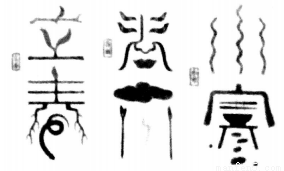题目内容
Reading and learning new words is about finding their meaning and use within a passage. The meaning of unknown words which you _______ in your reading sometimes can be known by their_______, that is, their contexts. The context of the sentence can tell us the part of speech(词性) of the _______word. Using the context of the paragraph to define unknown words can also be_______.
Readers often have trouble because they understand the sentence word by word but _______ meaning of a word, when they should identify the way it has been used in the passage.
One consideration in using the context is to determine the unknown word's part, of speech. The words around the unknown word can give you _______. Once you know if the word is a noun or an adjective, it is often enough for you to _______ reading without having to stop to look up the meaning of the word. After coming across the word a few more times, you will know its meaning more _______than if you had just looked it up.
Comparison clues indicate that two or more things are _______. A comparison is possible because the known and unknown words have ________. Words likewise show you that comparisons can be made.
________ clues tell you that an example of an unknown word follows. Example clues are usually ________ by the following words and phrases: such as, such, other, for example, and like.
To find meanings from text-based clues, you should look for clues in the sentence. A second kind of clue does not ________ on specific words to indicate meaning. This kind of context clue is called framework-based clue. Your knowledge of the meanings of surrounding words ________ you discover the meaning of a word or sentence. Common ________and your knowledge of the parts of speech also help in defining unknown words. For example: The angry driver shouted vehemently during his fight with the other driver. What does “vehemently” ________? You know what ________ means, and you know how people ________ when they argue. From this, you can ________ out that vehemently has something to do with strong ________ or intense feeling.
1.A. take down B. look up C. come across D. pick out
2.A. sentences B. words C. topics D. surroundings
3.A. unknown B. abnormal C. familiar D. negative
4.A. unique B. natural C. helpful D. common
5.A. incorrect B. inconvenient C. different D. satisfactory
6.A. cases B. reasons C. effects D. clues
7.A. translate B. interview C. continue D. examine
8.A. strangely B. uncertainly C. potentially D. firmly
9.A. alike B. meaningful C. proper D. great
10.A. properties B. similarities C. possibilities D. personalities
11.A. Popularity B. Consideration C. Example D. Comparison
12.A. affected B. adjusted C. changed D. introduced
13.A. focus B. spend C. carry D. rely
14.A. prevents B. helps C. tells D. displays
15.A. point B. taste C. awareness D. sense
16.A. mean B. use C. contain D. complete
17.A. angry B. grateful C. happy D. anxious
18.A. act B. say C. take D. think
19.A. come B. figure C. feel D. set
20.A. demand B. ambition C. attitude D. emotion


